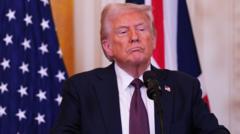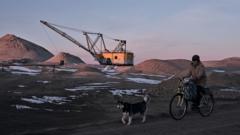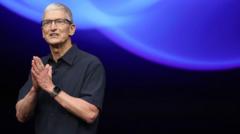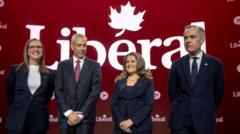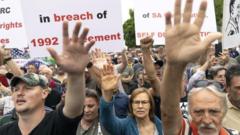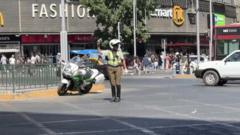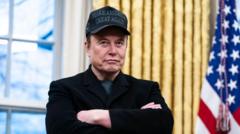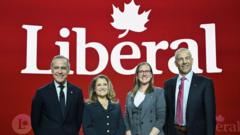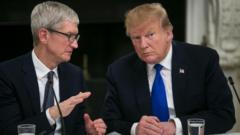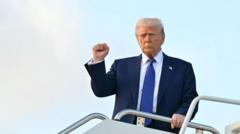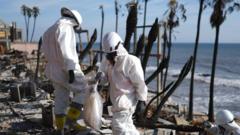New York City implements a daily congestion charge for vehicles entering a designated area, aiming to alleviate traffic congestion and support public transportation. While supported by state officials, the plan faces backlash from drivers, businesses, and former President Trump, who pledges to overturn it.
New York Launches First Congestion Charge in the U.S. Amidst Controversy
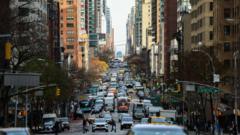
New York Launches First Congestion Charge in the U.S. Amidst Controversy
The new congestion charge in New York City, the first of its kind in the U.S., has sparked debate as it aims to tackle traffic woes and fund public transport.
New York City has officially implemented the United States' inaugural congestion charge scheme, establishing a daily fee for motorists entering a designated congestion zone. The charge, which varies for different vehicle types, aims to reduce the city's infamous traffic congestion while generating substantial revenue for public transportation improvements.
Under the new plan, car drivers will incur a charge of up to $9 (£7) each day for accessing areas south of Central Park, which include iconic locations such as the Empire State Building, Times Square, and the financial district surrounding Wall Street. The congestion zone will require small trucks and non-commuter buses to pay $14.40 during peak hours, while larger vehicles and tourist buses face a $21.60 fee. Outside of peak times, the charge for car drivers drops to $2.25.
The proposal for the congestion charge, first put forth by New York Governor Kathy Hochul two years ago, faced delays due to concerns raised by commuters and businesses. The most recent revision of the plan comes after an earlier scheme was halted in June due to complications deemed detrimental to residents.
However, the initiative has sparked significant opposition, with notable dissent expressed from local taxi driver associations and former President Trump, a prominent New Yorker. Trump has vowed to abolish the congestion charge upon taking office, with calls from local Republicans urging him to take immediate action against what they term an "absurd cash grab." Congressman Mike Lawler has reiterated this sentiment, asking Trump to intervene before the implementation expands.
Despite local pushback, a New Jersey state judge recently rejected an emergency motion intended to block the scheme, citing concerns regarding its environmental impact on bordering areas. A report by traffic-data firm INRIX highlighted New York as the world's most congested urban area for the second consecutive year, with vehicles in downtown Manhattan averaging speeds of merely 11 mph (17 km/h) during peak morning traffic last year. As the city embarks on this traffic regulation, the ongoing debate underscores the complex challenges surrounding urban transportation policy.

